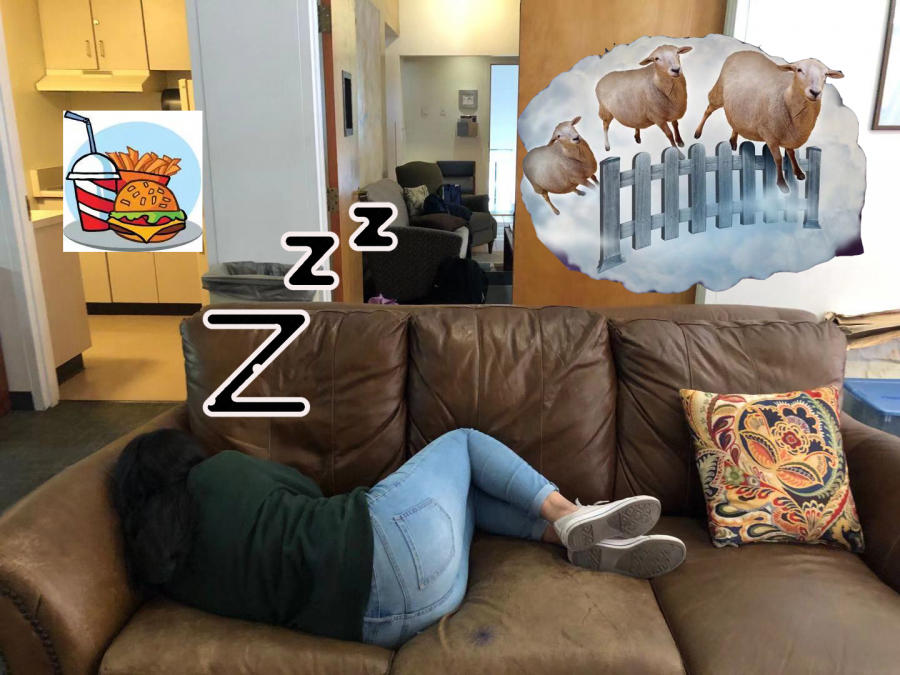Like some of her peers, Joanna Yap (‘22) likes searching up the meanings of her dreams, as she believes that it is interesting to look into them and find any underlying messages. But is dream analysis accurate? Do dreams reveal the dreamer?
Joanna said, “Dreaming is a really cool way to know what you are thinking about. Sometimes it does hold deeper meanings about people you care about, about how well you are taking care of yourself, and the things you need to watch for.”
Melanie Bauman, Director of Counseling and Health Education, said, “When we look at dream studies, we know people who enter into higher rates of stress, which relates to the quality, quantity and regularity of sleep, tend to dream in smaller snippets, and they tend to dip in and out of dreams. They dip in more quickly and pull out more quickly. In this case, it is the dreaming experience that matters, not the contents.”
People experience dreams differently, and they interpret dreams in various ways as well.
Jeffrey Zhong (‘20) said, “Dreams are usually random things you think about during the day. You notice something in the day, and you dream about it at night. It’s just subconscious… I think dreams are nothing special; they just happen.”
Gerry Song (‘22) believes that dreams reflect reality because he always dreams about the last thing he thinks about before falling asleep.
Nevertheless, we can reach the consensus that dreaming is a very important part of our routine because dreams tell stories about each of us, especially in terms of our stress level and heath.
Surprisingly, the dreaming process itself – dream patterns and memory of dreams, for example – is a better indicator of stress and is more revealing than the actual contents of the dreams.
Lucid dreaming, a stage of dreaming when people are conscious and can control the flow of their dream, can even indicate one’s stress level.
Ms. Bauman said, “A dream by its nature is the firing of our neurons. Lucid dreaming, when you know you are dreaming but are not fully awake, is an observation of thoughts… more lucid dreaming indicates a higher stress level. When we are sleep deprived, we drop through various stages of sleep more rapidly, which is what lucid dreaming is by definition.”
Josephine Hamilton (‘23) sees a correlation between the amount of video games people play and lucid dreaming.
Josephine said, “I have heard about very interesting research on video games: the more games you play, the more you process things, so the better you control your dreams…There is a higher chance of lucid dreaming in color for gamers.”
Ms. Bauman said, “I don’t know about that research, but it is not completely unscientific. When you are video gaming, your brain can be highly attuned to one area. While video gamers are not lucid dreaming when playing video games, their attention is so concentrated that they are unaware of their surroundings.”
While dreams vary from person to person and potentially reflect subjective meanings, it is hard to come up with general interpretations or conclusions. We need to understand ourselves and our sleep cycles, so that we can use dreams to analyze our health.
Ms. Bauman said, “The meanings of dreams are different for every single person. We cannot apply the same interpretation for everyone. Dreams are good representations of us when we know us. They are interesting to look at from an individual’s perspective.”
“At an individual level, we can use dreams to understand what is typical for us and what happens when our sleep cycles become impacted. For example, for someone who tends to remember dreams well, if during a period of time, the person stops remembering, then it might be a sign of stress.”
While students are still welcome to look up the meanings behind dreams, just like Joanna, it is more reliable to use dreaming patterns to understand stress levels. At Webb, students can be stressed about school work, sports events, relationships, and many other things. While events like Stress Less Week help students blow off steam, dreams and sleep can help students know that they are stressed.
For those of you who keep a sleep journal, besides writing down the contents of the dream, keeping track of the dream patterns (whether you dream in small snippets, experience lucid dreaming, etc.) is also going to help you know more about yourself.









